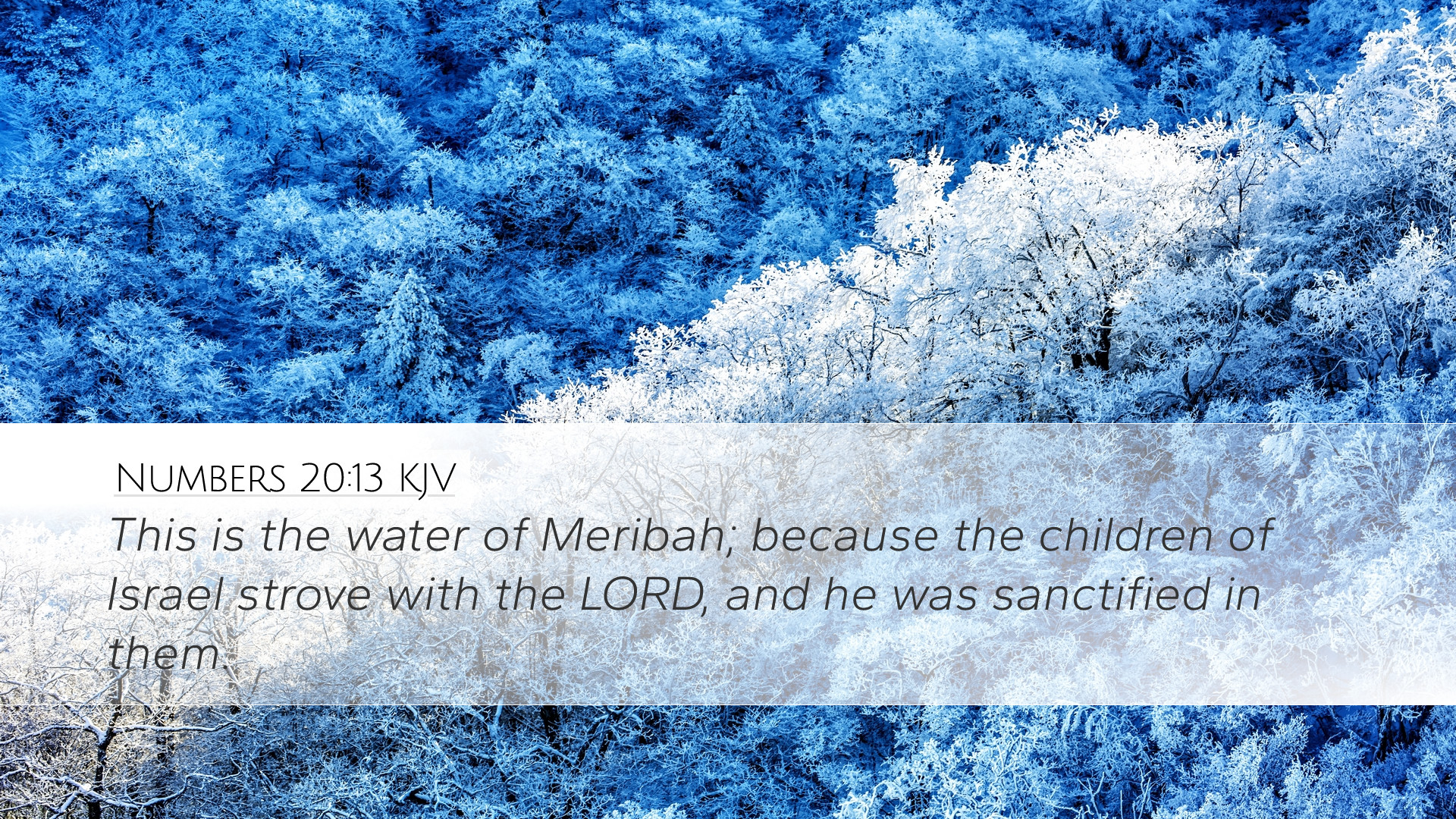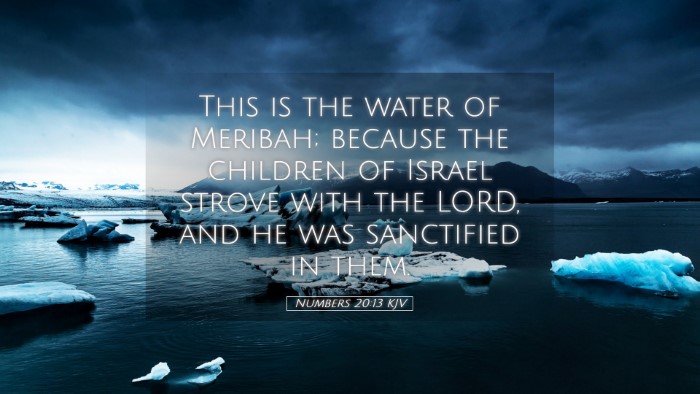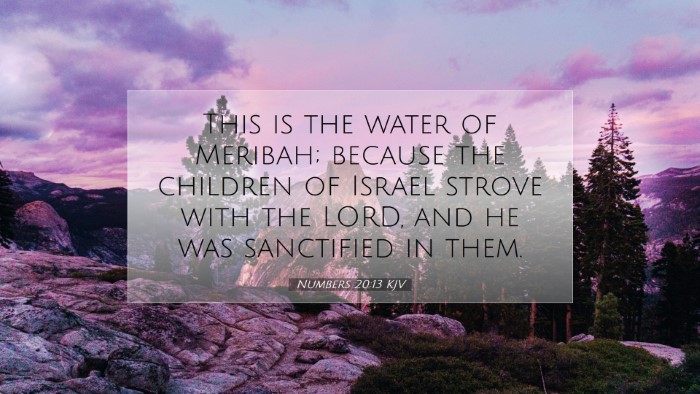Commentary on Numbers 20:13
Numbers 20:13 states: "This is the water of Meribah; because the children of Israel strove with the LORD, and he was sanctified in them."
Introduction
This passage captures a pivotal moment in the wilderness journey of the Israelites, marking both an act of divine provision and a moment of strife between God and His people. It serves as a reflective situation for both leaders and the laity in understanding the importance of faithfulness and reverence toward God.
Contextual Background
The context of this event is deeply rooted in the struggles of the Israelite community during their exodus from Egypt. Following a long journey, the people find themselves once again in need of water. This particular crisis leads to a significant moment that encompasses the themes of rebellion, divine holiness, and the nature of God’s responses to His people's actions.
Historical Context
- Bondage and Deliverance: The Israelites had been enslaved in Egypt; their liberation was marked by miracles and divine acts (Exodus 14).
- Rebel Hearts: Despite witnessing miracles, the Israelites often rebelled against God, as reflected in their demands and actions (e.g., Exodus 16:3).
- Lament at Kadesh: The Israelites faced various trials at Kadesh, a place that represents both the dissatisfaction of the people and God's judgment (Numbers 20).
Theological Implications
This verse not only denotes a historical context but also conveys profound theological implications. It reflects the dynamics of human interaction with the divine, particularly in the forms of conflict, dissatisfaction, and divine holiness.
God's Holiness
In the strife at Meribah, we witness how God's holiness is unaffected by human rebellion. Albert Barnes notes that God was "sanctified" in the sight of the Israelites, showing that regardless of their actions, He remains supremely sovereign and holy.
Human Rebellion
Matthew Henry emphasizes the continuous failure of the Israelites to trust God's provision, reflecting a consistent pattern of human discontentment. Their quarrels reflect the rebellious nature of mankind when faced with trials.
Practical Applications for Today
The events at Meribah resonate through history and are particularly significant for pastors, theologians, and students of the Bible.
Leadership Lessons
- Response to Strife: Leaders must recognize that responsibility comes with the weight of spiritual leadership. Moses' actions and attitudes serve as a cautionary tale about anger and disobedience.
- Trusting God's Provision: Faith leaders must reinforce that God's provision is constant, and they must model reliance on Him rather than on circumstances.
Encouragement for Believers
This passage serves as an encouragement that God remains present and holy amidst our struggles. The water at Meribah symbolizes both the grace of God in providing for His people and the severe implications of failing to honor Him.
Conclusion
The stark realities presented in Numbers 20:13 challenge believers to examine their faith in moments of trial. As the Israelites learned at Meribah, divine provision is assured, but reverent obedience to God's commands is fundamental. The legacy of their struggle reminds us that our interactions with God should always evoke holiness and reverence. This passage serves as a potent inquiry into how we respond to God when pressed by the trials of life, urging us toward a deeper understanding of His grace and majesty.


